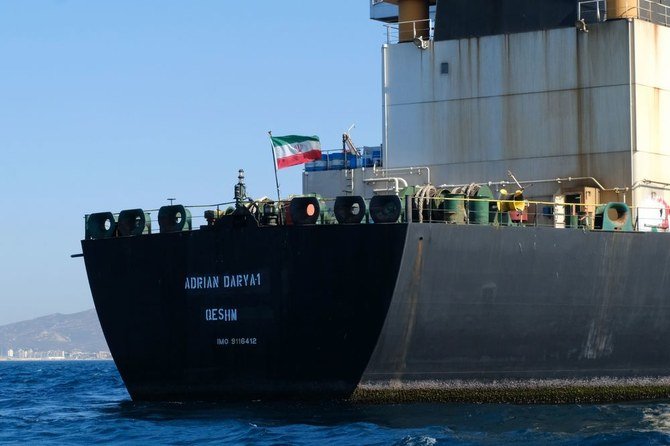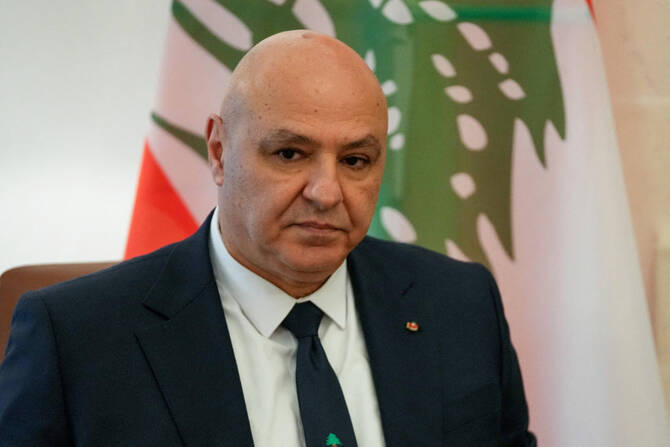DUBAI: The ocean vessel tracking service, Tankertrackers.com, denied Thursday claims that a tanker carrying Iranian fuel for Lebanon had entered Syrian territorial waters despite claims to the contrary.
Iranian state agency Fars News had reported that the tanker would offload in Syria before transporting the fuel to Lebanon by land.
“The tanker that arrived a few days ago in Syria is carrying 730,000 barrels of Iranian crude oil. It is not gasoline. Deliveries of crude oil happen a few times a month for Syria’s needs and not that of Lebanon,” Tankertrackers.com tweeted.
The tracking agency is currently following three tankers that Hezbollah leader Hassan Nasrallah said were bound for the small Mediterranean country.
“First tanker has not reached the Suez yet. Second tanker hasn’t left Iran yet but has left port. Third tanker is leaving Iran,” it tweeted Thursday, adding that it “normally takes 10-12 days to reach the Suez.”
The group said it would publicly announce the names of the three tankers “once or if they traverse the Suez Canal into the Mediterranean sea.”
With Lebanon struggling to secure enough fuel nationwide, amid a crippling foreign currency liquidity crunch, the Iranian-backed Hezbollah vowed that it would turn to Tehran for fuel oil to help ease shortages.
“We have agreed to start loading a third vessel,” Nasrallah said in a televised speech on Friday, adding that the “the coming days will prove those doubtful about the shipments arriving with fuel wrong … and our words will be clear when the first vessel reaches Lebanon.”
Two days later, the leader of the heavily armed group founded by Iran’s Revolutionary Guards in 1982 said the first vessel carrying Iranian fuel for Lebanon had already departed.
Opponents and critics of Hezbollah have lambasted the move, arguing that any Iranian fuel delivery would pave the way for sanctions from the US, which has vowed to punish anyone dealing with Tehran.
Moreover, critics have pointed to Hezbollah’s role in smuggling Lebanese subsidized fuel into Syria to prop up Bachar Assad’s regime, which has likely played a role in exacerbating Lebanon’s economic crisis. They have called on the group to seize its smuggling operations before attempting to alleviate the country’s fuel deficiency.
“Fuel imports before the Syrian civil war were around 5 or 6 million tons per year. This figure reached almost 12 million tons in 2019,” Jean Tawile, an economist and former government advisor, told Arab News.
In an interview with France24 in April, Shia cleric Sheikh Sadiq Al-Nabulsi and close associate of Hezbollah acknowledged that cross-border smuggling was an integral part of the militia’s apparatus.
“Smuggling is an integral part of the resistance’s operations to defend Lebanese interests,” he said boastfully.
Given the logistical and diplomatic difficulty of offloading the cargo in Lebanon, analysts have suggested that the group might instead to turn to neighboring Syria.
Speaking Wednesday, caretaker energy minister Raymond Ghajar said he was not aware of any official request to import fuel.
“Our role is restricted to import permits and we did not receive a request for permission,” he told reporters gathered in parliament.
Responding to a question on whether this means that tanker would arrive without an official permit, Ghajar said: “No. We do not have information at this point. Permission was not requested from us and this is all I am saying.”






















